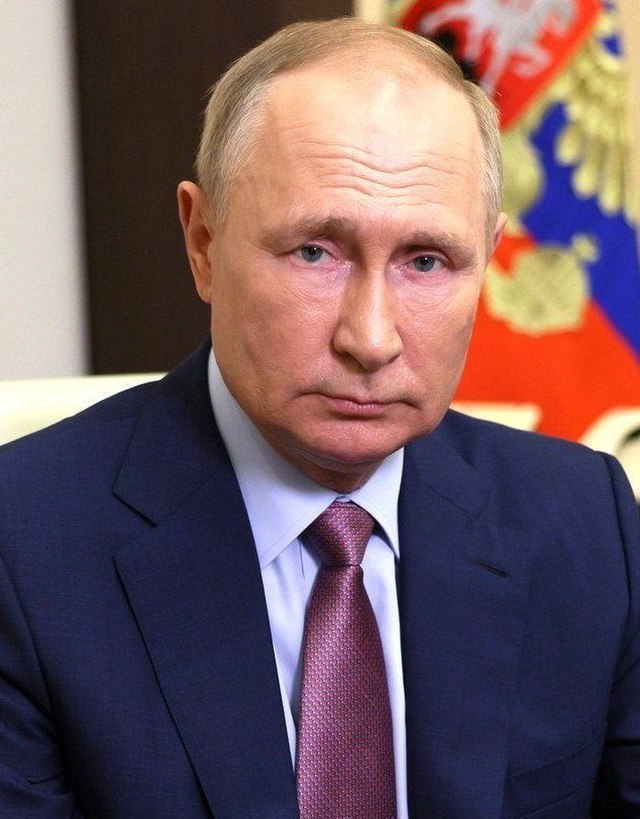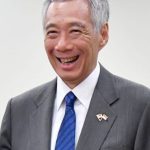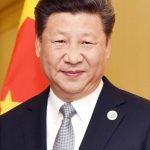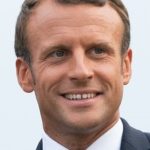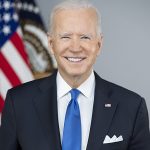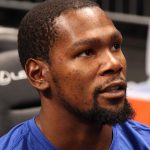Vladimir Putin, the enigmatic and influential leader of Russia, has been a central figure in global politics for over two decades. His tenure as President and Prime Minister has seen Russia navigate through significant domestic and international challenges. Known for his assertive leadership style, strategic acumen, and controversial policies, Putin’s impact on Russia and the world is profound and multifaceted.
Vladimir Putin’s Net Worth
Vladimir Putin’s wealth has been a topic of much speculation and controversy. Officially, Putin’s annual salary as the President of Russia is modest compared to many world leaders. According to his 2020 financial disclosure, Putin earned approximately $135,000. However, many experts and analysts believe that his true wealth far exceeds these official figures.
The exact extent of Putin’s wealth remains shrouded in mystery, largely due to the opaque nature of his financial dealings. Some estimates, such as those by former Russian banker Sergei Pugachev, suggest that Putin could be worth up to $200 billion, making him potentially one of the richest individuals in the world. This wealth is believed to be hidden in a complex network of offshore accounts, luxury properties, and assets held by trusted associates and family members.
Allegations of corruption and the accumulation of vast personal wealth have dogged Putin throughout his political career. The Panama Papers and other investigative reports have linked him to numerous secret assets and financial schemes. Despite these allegations, Putin has consistently denied any wrongdoing, maintaining that his wealth is limited to his official salary and modest personal assets.
Vladimir Putin’s Early Life and Family
Vladimir Vladimirovich Putin was born on October 7, 1952, in Leningrad (now Saint Petersburg), Soviet Union. He grew up in a modest working-class family. His father, Vladimir Spiridonovich Putin, was a conscript in the Soviet Navy and later worked as a foreman in a metal factory. His mother, Maria Ivanovna Putina, was a factory worker.
Putin’s early life was marked by the hardships of post-war Soviet Union. He lived in a communal apartment, a common arrangement in the USSR at the time, where several families shared one flat. Despite the challenging living conditions, Putin was a diligent student and showed an early interest in sports, particularly judo and sambo, which he pursued with great passion and discipline.
After graduating from high school in 1970, Putin enrolled at Leningrad State University to study law. It was here that he became involved with the KGB, the Soviet Union’s main security agency. Upon graduation in 1975, Putin began his career with the KGB, an organization that would significantly shape his future career and leadership style.
Vladimir Putin’s Career Height, Weight, and Physical Attributes
Vladimir Putin stands at approximately 5 feet 7 inches (170 cm) tall and weighs around 160 pounds (72 kg). Despite his relatively average height, Putin’s physical presence is often described as commanding. He has maintained a robust and fit physique, which he attributes to his disciplined lifestyle and regular exercise regimen.
Putin is well-known for his athleticism and penchant for displaying his physical prowess. Over the years, he has been photographed engaging in a variety of sports and outdoor activities, from judo and hockey to horseback riding and fishing. These images have been used to cultivate an image of a strong, virile leader, a stark contrast to the often more sedentary and formal image of other world leaders.
Vladimir Putin’s Relationship Status and Personal Life
Vladimir Putin’s personal life has been the subject of intense scrutiny and speculation. He married Lyudmila Shkrebneva in 1983, and the couple has two daughters, Maria and Katerina. Maria was born in 1985 in Leningrad, and Katerina was born in 1986 in Dresden, East Germany, where Putin was stationed as a KGB agent at the time.
The Putins’ marriage was relatively low-profile, with Lyudmila rarely appearing in public. In 2013, the couple announced their divorce, citing mutual consent and the demands of Putin’s political career as contributing factors. Since then, Putin’s personal life has remained largely private, with various rumors about his relationships and family life circulating in the media.
Despite the secrecy surrounding his personal affairs, Putin’s daughters are known to have pursued successful careers. Maria is a medical professional specializing in endocrinology, while Katerina is an academic and a professional in acrobatic rock’n’roll dance. Both women have maintained a low public profile, and their lives are kept largely out of the limelight.
Vladimir Putin Career
Early Career and KGB Service
After graduating from Leningrad State University in 1975, Vladimir Putin embarked on a career with the KGB. He was initially stationed in Leningrad, where he worked in counterintelligence before being transferred to Dresden, East Germany, in the mid-1980s. During his time in Dresden, Putin was involved in intelligence-gathering and surveillance activities, tasks that provided him with valuable experience in espionage and statecraft.
Putin returned to Leningrad in 1990, as the Soviet Union was on the brink of collapse. He resigned from the KGB in 1991 with the rank of Lieutenant Colonel and turned to politics, becoming an adviser to the mayor of Leningrad, Anatoly Sobchak. Putin’s work with Sobchak, a prominent reformist politician, helped him build a network of influential contacts and hone his political skills.
Rise to Power
In 1996, Putin moved to Moscow to join the administration of President Boris Yeltsin. He quickly rose through the ranks, holding various positions, including Deputy Chief of Presidential Staff and Director of the Federal Security Service (FSB), the KGB’s main successor agency. In 1999, Yeltsin appointed Putin as Prime Minister of Russia.
Putin’s rapid ascent continued when Yeltsin unexpectedly resigned on December 31, 1999, making Putin the Acting President. He was elected President in his own right in March 2000 and re-elected in 2004. During his early presidency, Putin focused on stabilizing the Russian economy, which had been in turmoil since the collapse of the Soviet Union. He implemented various economic reforms and leveraged Russia’s vast natural resources to fuel growth.
Leadership Style and Policies
Putin’s leadership style is characterized by a strong centralization of power and an emphasis on stability and control. He has been criticized for eroding democratic institutions, curbing press freedoms, and suppressing political opposition. Under his rule, Russia has seen a consolidation of power in the executive branch, with significant influence exerted over the judiciary and legislature.
One of Putin’s key policy areas has been the restoration of Russia’s influence on the global stage. He has pursued a more assertive foreign policy, often clashing with Western countries. Notable events include the annexation of Crimea in 2014, which led to international sanctions and a significant deterioration in relations with the West, and Russia’s involvement in the Syrian civil war, where it has supported the regime of Bashar al-Assad.
Prime Ministership and Return to Presidency
Due to constitutional term limits, Putin stepped down as President in 2008 but remained in power as Prime Minister under his close ally, Dmitry Medvedev, who succeeded him as President. This period saw the continuation of Putin’s policies and his significant influence over the government.
In 2012, Putin returned to the presidency after winning a controversial election. His third term was marked by increased tensions with the West, domestic protests, and further centralization of power. He was re-elected for a fourth term in 2018, continuing to dominate Russian politics.
Legacy and Impact
Vladimir Putin’s legacy is complex and multifaceted. Supporters credit him with stabilizing Russia after the chaotic 1990s, revitalizing the economy, and restoring national pride and international influence. Critics, however, accuse him of authoritarianism, corruption, and human rights abuses.
Putin’s impact on Russia and the world is undeniable. His tenure has shaped the country’s political landscape, economy, and foreign relations, leaving an indelible mark on global affairs. As he continues to lead Russia, the full extent of his legacy will likely be debated for years to come.
Frequently Asked Questions about Vladimir Putin
Who is Vladimir Putin?
Vladimir Putin is the current President of Russia, a position he has held since 2012, after previously serving from 2000 to 2008. He has also served as the Prime Minister of Russia from 1999 to 2000 and again from 2008 to 2012. Before his political career, Putin was a KGB officer. His leadership is characterized by strong centralization of power, a focus on economic stabilization, and assertive foreign policy. Putin’s tenure has been marked by significant political, economic, and social changes in Russia, as well as controversies related to human rights and democratic governance.
Is Vladimir Putin married?
Vladimir Putin was married to Lyudmila Shkrebneva from 1983 until their divorce in 2013. Lyudmila rarely appeared in public during their marriage. The couple announced their separation in June 2013, stating that it was a mutual decision influenced by the demands of Putin’s political career. Since their divorce, Putin’s personal life has been kept largely private, with various rumors and speculations about his relationships, but no confirmed reports of a new marriage.
What is the net worth of Vladimir Putin?
The net worth of Vladimir Putin is a topic of considerable speculation and controversy. Officially, Putin’s annual salary as the President of Russia is approximately $135,000. However, many analysts and experts believe his true wealth is much greater, potentially up to $200 billion, according to some estimates. This wealth is thought to be hidden in a complex network of offshore accounts, luxury properties, and assets held by associates and family members. Despite numerous allegations and investigative reports, the exact extent of Putin’s wealth remains unclear.
How many children does Vladimir Putin have?
Vladimir Putin has two daughters with his ex-wife, Lyudmila Shkrebneva. His eldest daughter, Maria, was born in 1985, and his second daughter, Katerina, was born in 1986. Both daughters have pursued successful careers while maintaining a low public profile. Maria is a medical professional specializing in endocrinology, and Katerina is an academic and a professional in acrobatic rock’n’roll dance. Information about Putin’s daughters is kept largely out of the public eye to protect their privacy.
What is the zodiac sign of Vladimir Putin?
Vladimir Putin was born on October 7, 1952, which makes his zodiac sign Libra. Libras are often described as diplomatic, charming, and strategic thinkers, characteristics that have been attributed to Putin’s leadership style.

